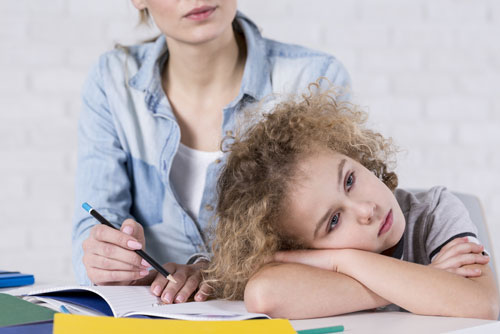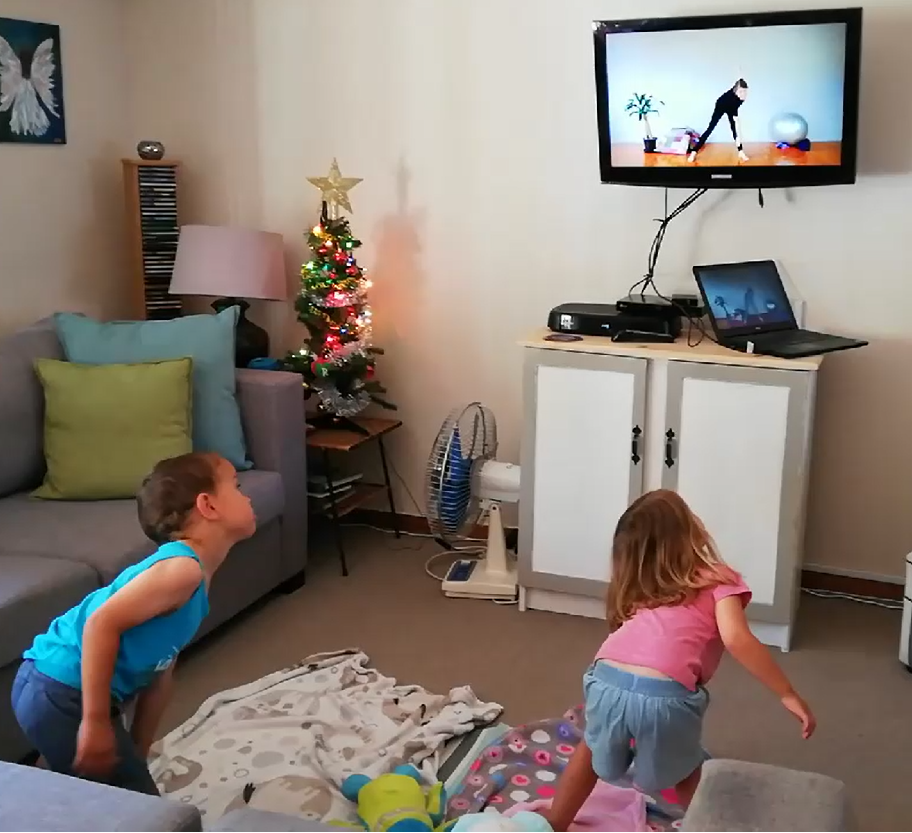ADHD & Attention Deficits
So what is ADHD
Attention Deficit Hyperactivity Disorder (ADHD) is a neurodevelopmental disorder that affects approximately 5-10% of children worldwide. ADHD can make it challenging for children to pay attention, stay organised, and complete tasks. It can also affect their social and academic performance, making managing the condition difficult.

Occupational therapists play a crucial role in managing ADHD in children. They provide a range of interventions to help children with ADHD develop skills such as organisation, time management, and planning. In recent years, online video exercises have become an effective way for occupational therapists to support children with ADHD and their parents.
Signs of ADHD
ADHD, or Attention Deficit Hyperactivity Disorder, is a disorder that affects both children and adults. There are several signs and symptoms that may indicate the presence of ADHD. Inattention, hyperactivity, and impulsivity are the three core symptoms of ADHD, but not all individuals with the disorder display all three. Other signs of ADHD may include forgetfulness, poor time management, difficulty completing tasks, trouble paying attention to details, excessive talking or interrupting others, fidgeting or restlessness, and poor organizational skills. If you or a loved one are experiencing these signs or symptoms, it is important to seek professional evaluation to determine whether ADHD or another condition may be present.

ADHD vs Autism
ADHD and autism are two distinct conditions that can have overlapping symptoms. ADHD is a neurodevelopmental disorder characterized by symptoms such as difficulty paying attention, hyperactivity, and impulsivity. Autism, on the other hand, is a neurodevelopmental disorder that affects social interaction, communication, and behaviour. Although both conditions can have symptoms such as difficulties with social interaction and communication, they have distinct differences. For example, individuals with autism may struggle with social cues and reciprocity, while individuals with ADHD may struggle with impulsivity and hyperactivity. It is essential to have a proper diagnosis to differentiate between the two conditions and provide the appropriate treatment and support.

ADHD Test
An ADHD test is used to diagnose Attention Deficit Hyperactivity Disorder in children and adults. The test typically involves a series of questions that assess a person’s ability to pay attention, focus, and complete tasks. The test may also evaluate a person’s behavioural patterns and symptoms, such as hyperactivity and impulsivity. While there is no single definitive test for ADHD, a comprehensive evaluation by a trained professional can help determine whether a person meets the criteria for an ADHD diagnosis. It’s important to seek professional help if you suspect your child may have ADHD, as proper diagnosis and treatment can make a significant difference in managing the condition.

Online Video Exercises for Children with ADHD
Online video exercises have become increasingly popular as a tool to help children with ADHD develop critical skills. These videos typically feature a therapist who guides children through exercises and activities that help them learn how to manage their ADHD symptoms effectively.
One of the most popular online video exercise programmes is the CoordiKids Home course. The CoordiKids Home Course is a series of video exercises designed to help children with ADHD improve their coordination, attention, and organisational skills. The course includes a range of fun and engaging exercises that help children develop their motor skills, spatial awareness, and attention.
The CoordiKids Home Course videos are suitable for children of all ages, and parents can easily incorporate them into their child’s daily routines. The videos are designed to be short, so children can complete them quickly, making them perfect for busy parents who want to help their child develop their skills but have limited time.

Strategies for Parents to Help Their Child with ADHD
In addition to online video exercises, parents can use several easy strategies to help their child with ADHD. These strategies are simple but effective and can make a significant difference in helping children manage their symptoms. Below are some easy strategies parents can use to help their child with ADHD:
- Establish Routines – Children with ADHD often struggle with time management and organisation. Establishing a routine can help children with ADHD to manage their time more effectively. Parents should establish a consistent daily routine for their child, including regular meals, bedtime, and designated study times.
- Set Clear Expectations – Children with ADHD often find it challenging to understand what is expected of them. Parents should set clear expectations for their child’s behaviour and communicate them in a way their child can understand.
- Break Tasks into Smaller Steps – Children with ADHD often struggle to complete tasks that require sustained attention. Breaking tasks into smaller steps can make them more manageable for children with ADHD. Parents should work with their child to break tasks into smaller steps, making it easier for them to complete them.
- Use Visual Cues – Children with ADHD often respond well to visual cues. Parents can use visual cues such as pictures, charts, or diagrams to help their child understand tasks and expectations.
- Practice Positive Reinforcement – Positive reinforcement can be a powerful tool in helping children with ADHD. Parents should praise their child for their efforts and accomplishments, no matter how small they may seem.
Conclusion
Managing ADHD in children can be challenging, but with the right strategies and support, it is possible to help children with ADHD manage their symptoms effectively. Occupational therapists play a crucial role in providing support to children with ADHD, and online video exercises such as the CoordiKids Home course can be an effective way to help children develop their skills.
Parents can also play a crucial role in helping their child manage their ADHD symptoms. By establishing routines, setting clear expectations, breaking tasks into smaller steps, using visual cues, and practising positive reinforcement, parents can help their child develop the skills they need to manage their ADHD effectively.
If you are concerned about your child’s ADHD symptoms, it is essential to seek professional help. An occupational therapist can provide such a service. Book a 15 min free consultation now with Marga Grey, a paediatric occupational therapist with over 40 years of experience with children, as described above.